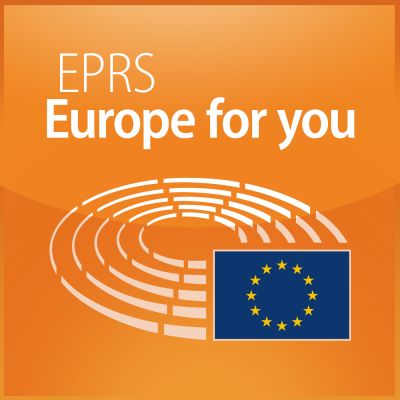http://www.w3.org/2005/Atom
http://www.europarl.europa.eu/rss/en/audio-podcasts.html
Gesamtlänge aller Episoden: 1 hour 51 minutes
Phone and internet users
Almost all of us use telecom services: about 82 % of EU citizens have used the internet in the last 3 months, 360 million Europeans use it every day and there are around 700 million SIM cards currently in circulation in the EU.
Volunteers abroad
Volunteering abroad is a way for you to enhance both your skills and your awareness of the various challenges around the globe. But how much do you know about the possibilities out there?
Young people not in education, employment or training
Many Europeans aged between 15 and 24 years are likely to have experienced difficulties in finding a job and becoming independent, largely due to the 2008 economic and financial crisis. In 2015, 12 % of young Europeans (6.6 million individuals) were not in work, education or training – a social phenomenon known as the NEETs (young people who are 'not in education, employment or training').
People affected by forest fires
Forest fires devastate thousands of hectares of forest every year in Europe, affecting the population of countries at greatest risk of forest fires, such as Portugal, Spain, France, Italy, Greece and Croatia. In 2017, fires destroyed a forested area of Europe four times the size of Luxembourg. In Portugal alone, more than 100 people were killed in summer 2017.
Bathers
Europe's bathing water is much cleaner today than previously. Europeans can now swim in increasingly cleaner coastal and inland bathing areas, thanks to EU laws and national water policies that protect our health and the environment. In 1975, environmental and health concerns led to the first EU legislation on bathing water. It set out minimum quality standards for clean bathing water across Europe and was revised in 2006 to introduce quality management and simplify controls.
Bird watchers
Like many of us, you may derive great pleasure and inspiration from watching wild birds and listening to their song. Birds are also an essential element of our ecosystems, which provide us with clean water, pure air, food, medicines and important raw materials.
Secondary school students
How many years young people spend in school, the subjects they study, the exams they take – all of this varies from country to country, and sometimes even from region to region. In some countries, pupils wear school uniforms while in others, they don't; in some, everyone has the same basic education, while in others, there's a choice between grammar schools and vocational schools...
Undergraduated students
If you are studying your first degree or are considering in enrolling for one, you may think about going abroad for a part of those studies. In that case, your university’s international office will have information about the possibility of an Erasmus exchange. As an Erasmus student, you do not have to pay registration or tuition fees to your host university, your studies count for your degree, and you receive an EU grant.
Antibiotics users
Antibiotics are a very useful drug when you are sick and the doctor tells you that you need to take them. However, antimicrobial resistance (AMR) is a growing global threat to public health. It occurs when bacteria and other microbes, like viruses and fungi, develop resistance to drugs, especially antibiotics, used to treat the infections they cause. Although resistance appears naturally over time, it is accelerated by factors like overuse of antimicrobial medicines on humans and animals...
Beekeepers
Antibiotics are a very useful drug when you are sick and the doctor tells you that you need to take them. However, antimicrobial resistance (AMR) is a growing global threat to public health. It occurs when bacteria and other microbes, like viruses and fungi, develop resistance to drugs, especially antibiotics, used to treat the infections they cause. Although resistance appears naturally over time, it is accelerated by factors like overuse of antimicrobial medicines on humans and animals...
